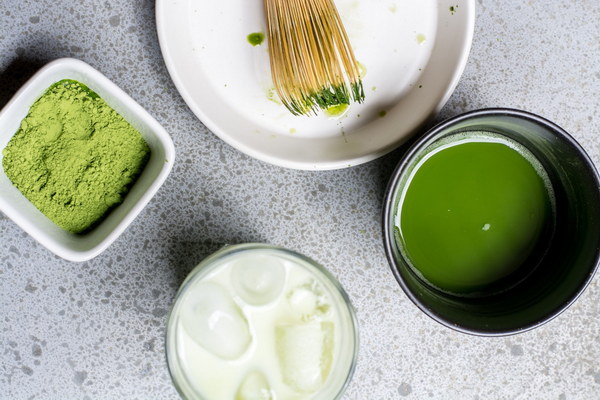Does Drinking Green Tea Really Help in Anti-Aging
Introduction:
In the world of health and wellness, the debate over the benefits of green tea has been ongoing for years. One of the most talked-about benefits is its potential to combat aging. But does drinking green tea really help in anti-aging? Let's dive into the research and find out.

1. Antioxidants and Free Radicals:
The primary reason why green tea is often associated with anti-aging is its high content of antioxidants. Antioxidants are substances that help protect our cells from damage caused by free radicals, which are unstable molecules that can harm our DNA and lead to aging and disease. Green tea contains a type of antioxidant called catechins, which are believed to have strong anti-aging properties.
2. Research on Green Tea and Aging:
Numerous studies have been conducted to investigate the potential anti-aging effects of green tea. One study published in the Journal of the American Medical Association (JAMA) in 2015 showed that drinking green tea was associated with a lower risk of mortality from all causes, including cardiovascular disease and cancer. Another study published in the European Journal of Clinical Nutrition in 2016 found that green tea consumption was linked to a reduced risk of skin aging.
3. Benefits for Skin:
Green tea's anti-aging effects are not limited to internal health. Its benefits for the skin are also significant. The antioxidants in green tea can help protect the skin from UV radiation and reduce the appearance of wrinkles and age spots. Additionally, green tea has been found to have anti-inflammatory properties, which can help soothe and heal damaged skin.
4. Weight Loss and Metabolism:
Another factor that contributes to the anti-aging effects of green tea is its ability to boost metabolism and aid in weight loss. Green tea contains a substance called epigallocatechin gallate (EGCG), which has been shown to increase fat oxidation and improve insulin sensitivity. By promoting weight loss and maintaining a healthy body weight, green tea can help slow down the aging process.
5. Mental Health:
Green tea also has a positive impact on mental health, which is closely linked to the aging process. The amino acid L-theanine found in green tea has been found to have a calming effect on the mind, reducing stress and anxiety. This can help improve overall cognitive function and protect against age-related cognitive decline.
6. Limitations and Considerations:
While the evidence suggests that drinking green tea can contribute to anti-aging, it is essential to consider some limitations. Firstly, the studies mentioned above were observational and cannot prove a direct cause-and-effect relationship. Secondly, the benefits of green tea may vary from person to person, and it is not a substitute for a healthy lifestyle and proper medical care.
Conclusion:
In conclusion, drinking green tea may indeed help in anti-aging. Its high content of antioxidants, potential to boost metabolism, and positive effects on both skin and mental health make it a valuable addition to a healthy lifestyle. However, it is important to approach the subject with a balanced perspective and not rely solely on green tea as a solution to aging. To achieve optimal anti-aging benefits, a well-rounded approach that includes a balanced diet, regular exercise, and adequate sleep is essential.









